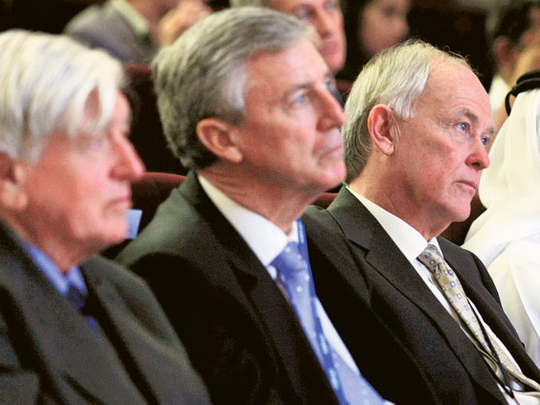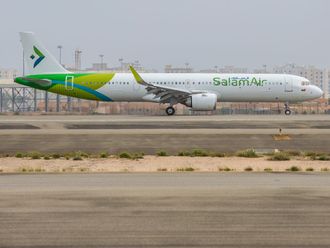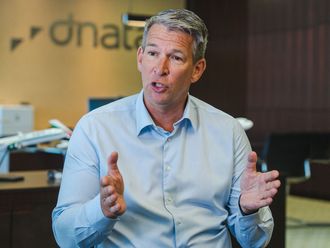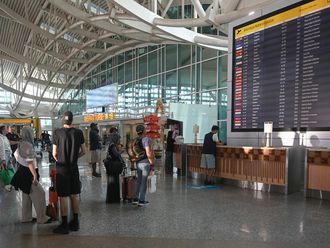
Dubai: Emirates Group will give Dh2 billion — the highest ever — in dividend for the financial year 2010-11 to its shareholder — the Government of Dubai, Shaikh Ahmad Bin Saeed Al Maktoum, President of Dubai Civil Aviation and Chairman and Chief Executive of Emirates airline and Group, said.
He spoke to Gulf News on the sidelines of a press conference to announce the company's earnings for 2010-11.
He said. "Yes, we are announcing a dividend of Dh2 billion to our shareholder. It is the highest dividend we have paid so far.
"But also note that the government spends a lot of money on the airport and the infrastructure so that's where a lot of money goes."
The dividend paid by the airline has substantially increased over the last few years. Emirates paid Dh1.6 billion as dividend to Dubai Government in the previous financial year ending March 31, 2010.
Shaikh Ahmad is also Chairman of the Supreme Fiscal Committee that Dubai created two years ago.
Shaikh Ahmad said yesterday that the cash balance for the Emirates Group stood at $4.4 billion (Dh16.16 billion) for the year, which marked a whopping 28.3 per cent increase over the previous year.
Saj Ahmad, UK-based aerospace and aviation analyst with FBE Aerospace, told Gulf News: "Emirates has a very strong cash balance and its liquidity and access to capital is excellent. The amount paid out is no more than what it can afford, so the sum given is not that surprising given the company's financial strength."
He added that the carrier "can do the same, if not more" in its following financial year as well, "particularly if demand pressures mean they don't expand as fast. That means that they have cash to spare and put back into the Dubai Government".
Looking ahead
Target for 2011-2012
Despite the volatility in oil prices, Emirates expects to continue making profit, according to Shaikh Ahmad. "Our target will always be to do more than what we did in the previous year. The airline will grow at a double-digit rate this year and next," he said.
Impact of fuel prices
Fuel accounted for 34.4 per cent of Emirates' operating costs in 2010-11.
"Of course, the fuel price increase impacted Emirates just like it did all airlines across the globe. We paid an extra $250 million (Dh918 million) in the last four months, which affected our profitability. Otherwise we would have made an extra profit of Dh1 billion," Shaikh Ahmad said.
Saj Ahmad, analyst with FBE Aerospace, told Gulf News: "Emirates fuel hedging policy will be largely unchanged for the next couple of years. They have a great strategy of buying inventory at prices that do not leave them susceptible to dramatic oil price fluctuations."
Added Diogenis Papiomytis, Principal Consultant, Aerospace and Defence Practice at Frost & Sullivan: "With the current volatility in oil prices, fuel hedging is nothing more than a risky bet. Although the long-term trend is upwards, no one can predict how fuel prices will perform this year or next."












